A Brutal Attack. A Failed Prosecution. And a Warning for Queer Arizonans.
A gay man was knifed after allegedly being called a homophobic slur. The Maricopa County Attorney said it’s not enough to charge his attacker.
A gay man was knifed after allegedly being called a homophobic slur. The Maricopa County Attorney said it’s not enough to charge his attacker.

On May 5, 2024, Rene Almaraz was visiting Phoenix from California to see a friend. That night, they went to Karamba Nightclub—a vibrant, pulsing hub for the city’s Latino LGBTQ+ community near McDowell Road and 16th Street.
But what started as a night of dancing ended with Almaraz getting stitches in the hospital.
When he and three friends got into an Uber to leave the nightclub, the ride quickly turned hostile. By the time they got out, Almaraz was covered in blood, with knife wounds slashed across his face and skin peeling from the gashes, according to a police report.
Multiple witnesses said the Uber driver allegedly muttered a homophobic slur before violently attacking Almaraz with a knife.
The Uber driver was removed from the platform, but he wasn’t charged with a crime. Just a few months after the attack, Almaraz was informed that the Maricopa County Attorney’s Office had dropped the case, citing a lack of evidence “beyond a reasonable doubt” and a self-defense claim by the driver—a claim no one else in the car supports.
And nearly a year after the attack, Almaraz is afraid to return to Arizona, and has given up on the idea he will ever get a chance to defend his case.
The incident isn’t isolated. LGBTQ+ advocates say Almarez’s case reflects a growing and dangerous pattern in Arizona: queer people are being targeted—and law enforcement is doing little to protect them.
According to Almaraz and a police report obtained by LOOKOUT, he and his friends heard the driver—later identified as Arnold Lawton—mutter a homophobic slur as they entered the vehicle when they were picked up from the queer nightclub. Witness statements included in the report describe the driver growing increasingly agitated at the group’s conversation and use of “gay lingo,” turning up a staticky radio station to drown them out.
Almaraz said the noise felt antagonistic, and told Lawton to drop them off early if he was bothered. A brief argument followed before Lawton pulled over and attacked Almaraz with a small knife as the group tried to exit the vehicle.
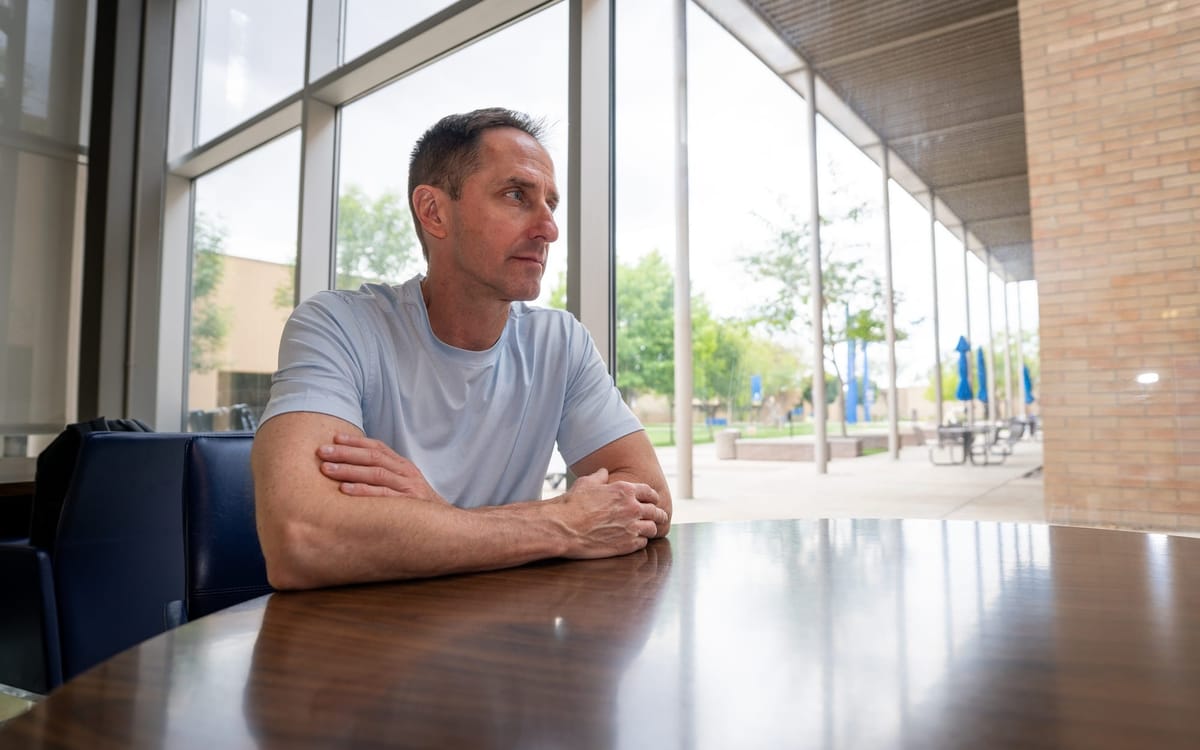
Almaraz’s friends escaped unharmed. He, however, suffered severe lacerations to his face and hand that required emergency care. Police noted in their report that “half of his face seemed peeled off.”
Lawton did not respond to LOOKOUT for comment for this story.
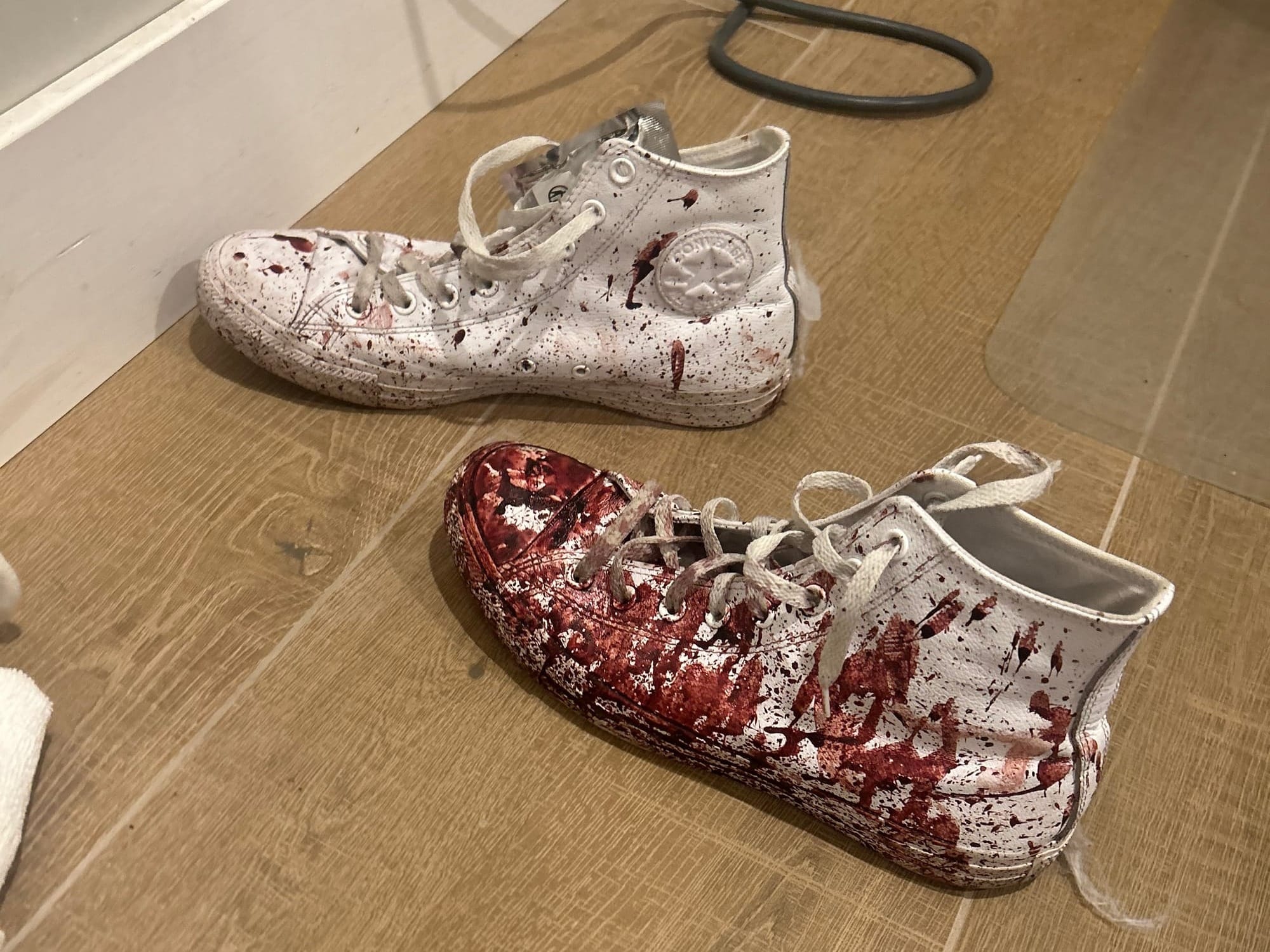
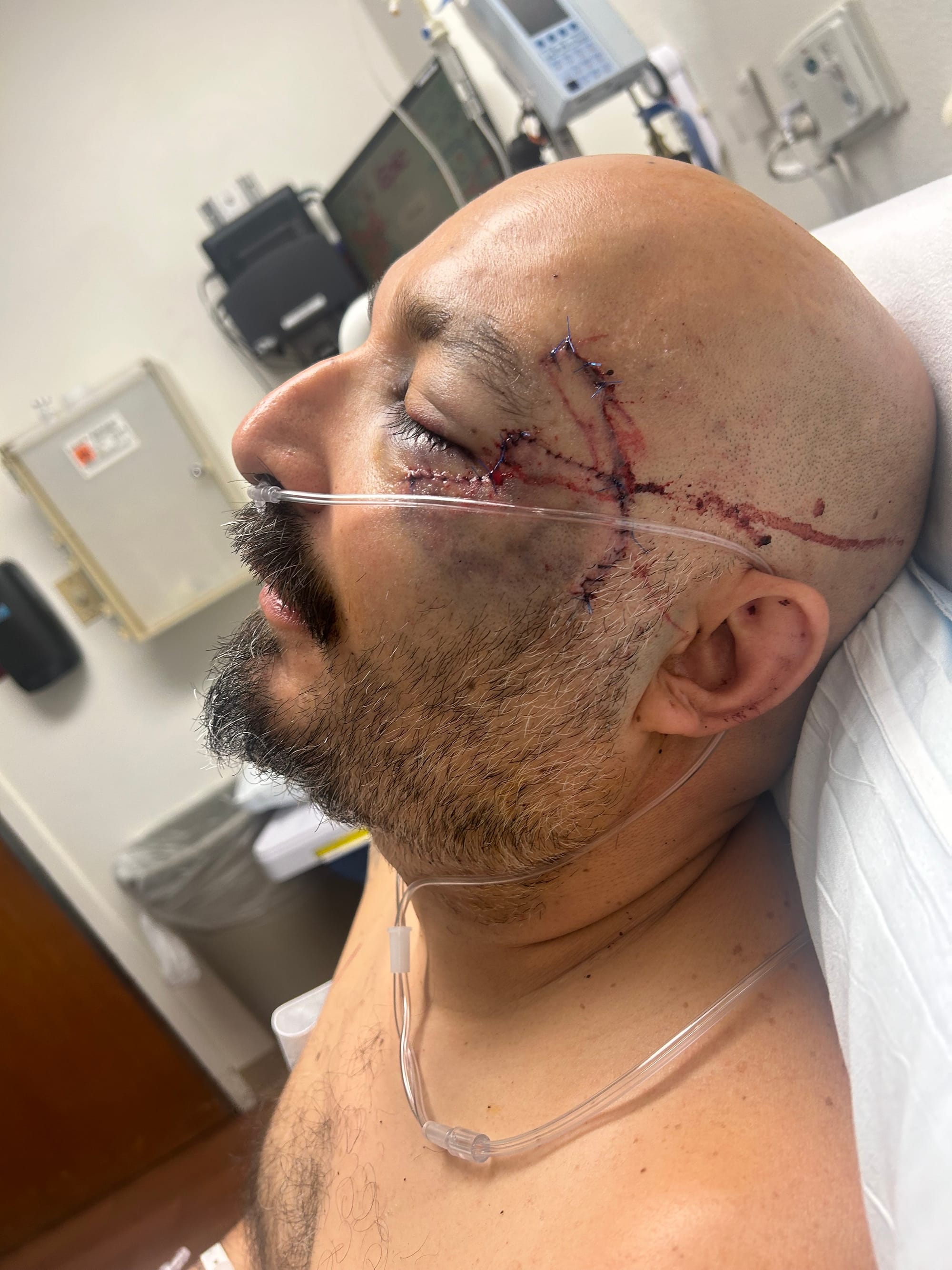
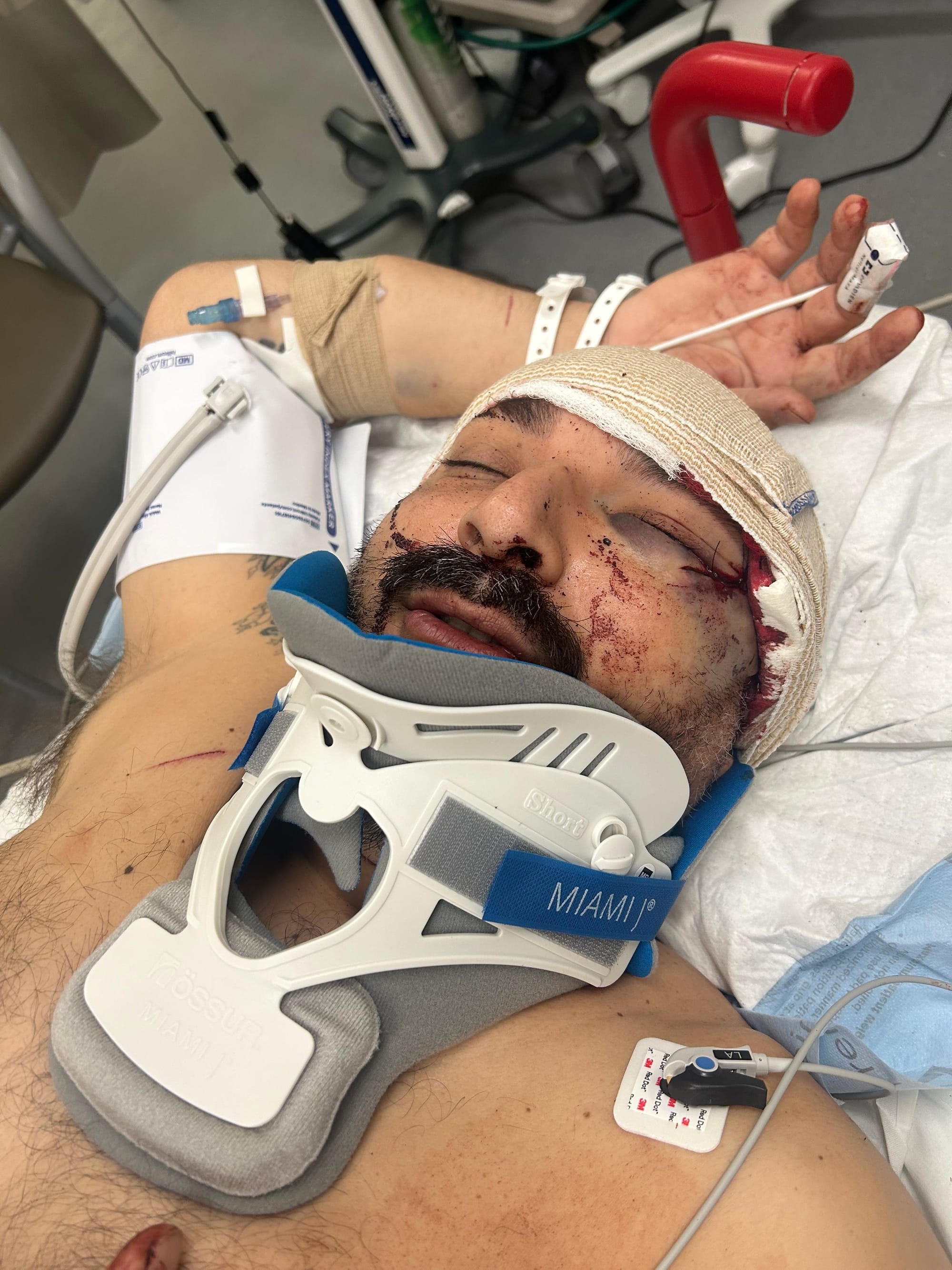
Almaraz in the hospital. (Photo courtesy of Rene Almaraz)
Almaraz and his friends believe the attack was clearly motivated by homophobia. But Arizona has no state-level hate crime law, meaning prosecutors could not charge Lawton with an anti-gay bias crime. Almaraz also contacted the FBI to report the incident as a hate crime but never received confirmation that his complaint was processed.
Despite the Phoenix Police Department’s designated LGBTQ+ liaisons and Victim Advocacy Unit, Almaraz said he felt abandoned throughout the investigation. He said he was only contacted by Phoenix Police the night of his attack, and it wasn’t until he contacted them himself months later when they put him in touch with a community liaison.
Almaraz said that meeting involved only exchanging contact information and recounting the incident. Afterward, months passed without follow-up, prompting him to contact Phoenix police again.
He eventually received a call from Detective Charlee McDermott, head of the department’s bias crimes unit. While their communication was brief, Almaraz said McDermott helped him better understand the investigation process, and he didn’t feel completely in the dark.
Phoenix police spokesperson Sgt. Brian Bower told LOOKOUT that McDermott was assigned the case after it was flagged as a possible bias crime. Bower said McDermott coordinated with an LGBTQ+ liaison to contact Almaraz and offer support. Almaraz, however, said no one outside of his first interaction ever reached out.
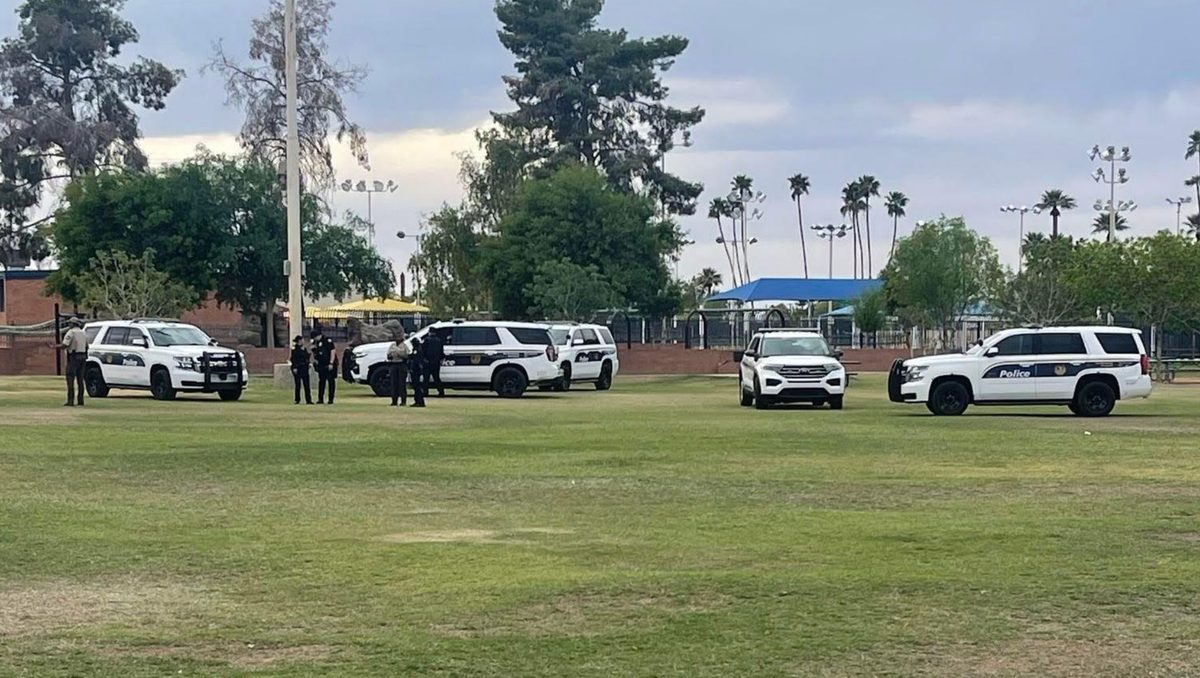
Bower responded that delays can occur for multiple reasons, including caseloads and prioritizing evidence collection.
LOOKOUT and Phoenix New Times recently reported on another LGBTQ+ victim who said Phoenix police were inconsistent and frustrating throughout a decade-long fight for justice. (After publication, the department removed the LGBTQ+ liaison contact page from its website.)
And with bias-fueled crimes on the rise in Arizona, critics say the lack of consistency—especially in a department with a bias crimes unit and two designated LGBTQ+ liaisons—is glaring.
Several months after his last contact with McDermott, Almaraz received both a letter and a phone call from the county attorney’s office. The prosecutor’s office said they would not be filing charges against the man who mutilated his face and hands.
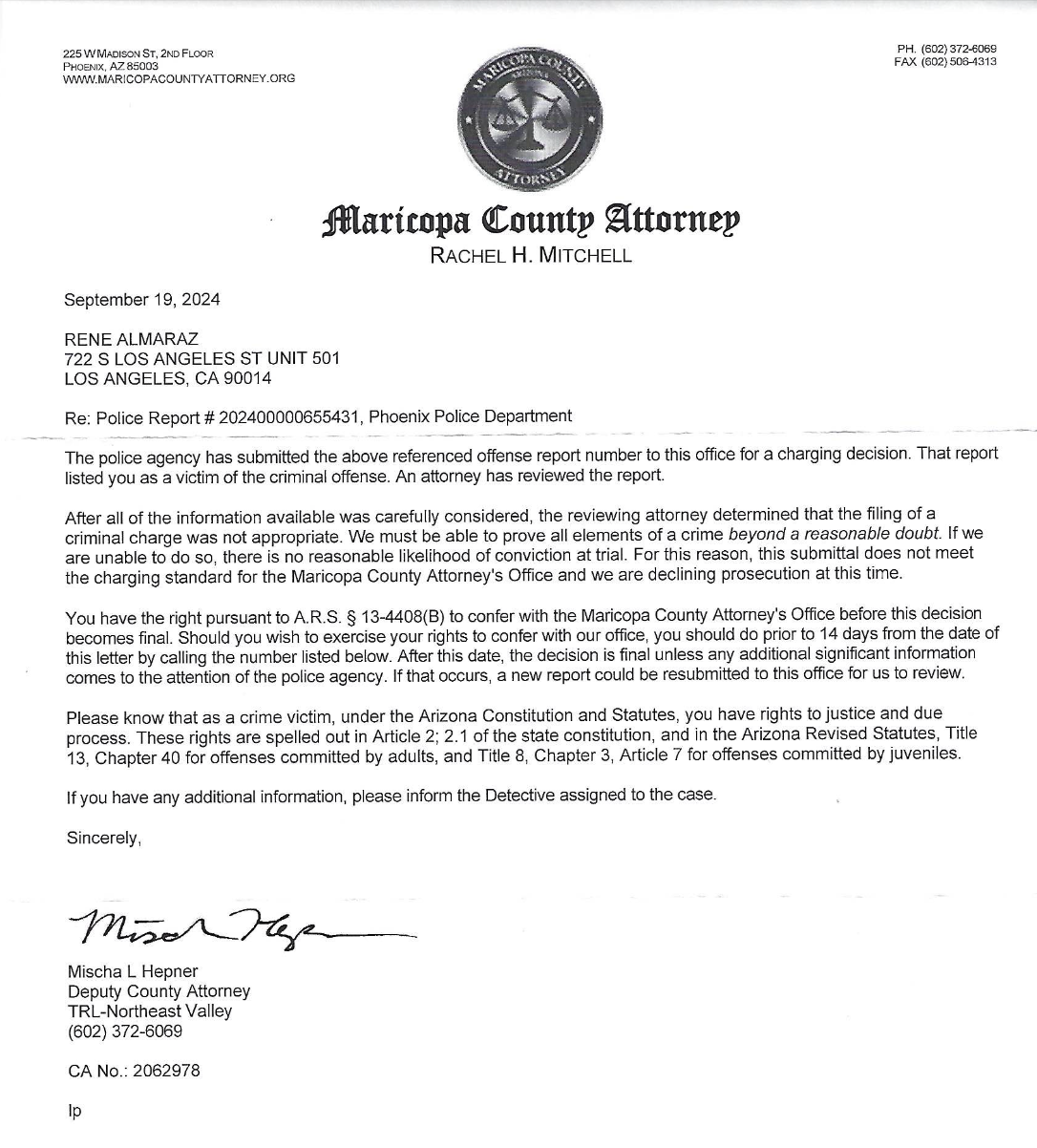
Almaraz said the representative who called identified as a fellow member of the LGBTQ+ community and expressed sympathy, but ultimately reiterated that the case would not move forward.
Throughout his conversations with McDermott, though, Almaraz said he was given hope that prosecutors had a strong case, based on physical evidence and inconsistencies in Lawton’s story.
But the county attorney’s office ultimately viewed the case as a “he said, he said” scenario, with Lawton claiming he acted in self-defense. According to the police report, Lawton told investigators that while slowing down the vehicle, he was “punched in the back of the head and on the side of his body so many times that he saw stars.”

No witnesses corroborated Lawton’s account, and it's unclear how much the county attorney's office leaned on his story. But without video footage of the attack—Uber allows drivers to install them but does not require it—the evidence collected would appear to focus heavily only on eye witnesses.
“I don’t understand how it could be deemed self-defense or why it was turned down,” Almaraz said. “I was unarmed, he had multiple weapons in the car—it just didn’t make any sense. It was heartbreaking. I was completely assaulted and violated. I could have lost my life.”
Vanessa Ceja-Cervantes, a spokesperson for the Maricopa County Attorney’s Office, said that after a decision letter is sent, a prosecutor or victim advocate will often contact the victim to explain the decision. However, Phoenix police told LOOKOUT that it is up to the victim to reach out after being given advocate contact information.
Almaraz said he never heard from an advocate, and has had no further contact from Phoenix police.
Nearly a year later, Almaraz says the physical wounds have healed, but the trauma remains.
“I don’t even want to visit Arizona again,” he said. “I don’t feel protected or safe there. I can’t seem to reconcile the fact that people could get away with this.”
An Uber spokesperson confirmed that Lawton’s access to the platform was removed as soon as the incident was reported.
After receiving the county attorney’s decision, Almaraz said he didn’t feel motivated to keep pursuing the case—largely because of how it was handled from the beginning.
“This incident affirms my stance on the inequities in the social justice system,” he said. “We’re unheard, we’re targeted, we’re left in the dark. We’re brutalized by the system itself.
At LOOKOUT, we believe in the power of community-supported journalism. You're at the heart of that community, and your support helps us deliver the news and information the LGBTQ+ community needs to thrive.
LOOKOUT Publications (EIN: 92-3129757) is a federally recognized nonprofit news outlet.
All mailed inquiries can be sent to 221 E. Indianola Ave, Phoenix, AZ 85012.